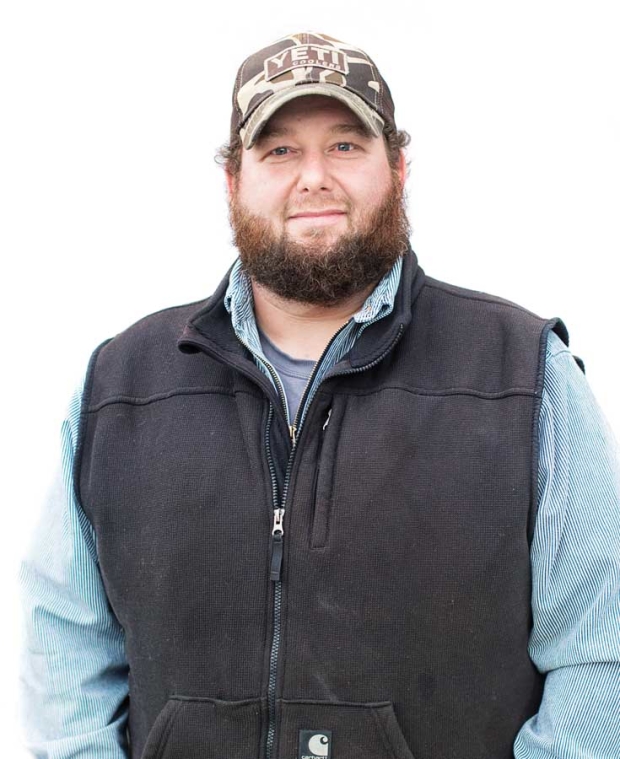Ryan is a second-generation grower managing about 800 acres, primarily consisting of cherry and pear trees in The Dalles and south through Dufur into the Tygh Valley.
age / 35
crops / Cherries, pears and apples
business / R&D Orchards, K&K Land Management
family background / Ryan is a second-generation grower managing about 800 acres, primarily consisting of cherry and pear trees in The Dalles and south through Dufur into the Tygh Valley.
What was your path to farming?
 I was born in the Yakima Valley and my dad started farming when I was about 5 years old. I started helping out on a farm in Royal City, Washington, when I was about 12.
I was born in the Yakima Valley and my dad started farming when I was about 5 years old. I started helping out on a farm in Royal City, Washington, when I was about 12.
I remember swearing that I was never going to be a farmer. So I went to Washington State University for golf course management. After a few years working at courses on the East Coast and in California, my dad’s boss called offering a job running an orchard in Oregon.
Two months later, at 23 years old, I was suddenly in charge of 200 acres in Parkdale with a boss saying, “You’re going to figure it out.” So I did. Thankfully I had good neighbors and I worked for good people.
What were some of the most important things you learned at the beginning?
Starting out, I had to learn how to work with people. Being able to work with a crew when you’re 23 years old and you’re the boss – boy, that’s a lot of power.
For me it seemed like, “It’s going to be my way or the highway, and I’m not going to bend.” I learned early on that it’s awful tough keeping a crew happy. That’s something that I’m still learning.
How are you approaching the future?
I’ve transitioned out of being the guy sitting on the tractor to being the guy that’s making sure the crews have what they need to operate the tractor. Also the paperwork is a new thing to keep track of.
I’m focused on time management because we may get done spraying a block and the next thing I need to do is drop into the office to fill out the spray record.
Because if I don’t do it at that time, the chances of me getting that spray record down with correct information is a little slimmer.
What were some of your struggles?
Early on I lost a block to pseudomonas and another to fire blight. It was a hit to my pride. I had to be told that it wasn’t anything I did. It hurts.
It’s not a pretty thing to go out and see the trees that you’ve poured all of this time and energy into die. You were the one on the tree planter putting them into the ground, you rolled out the irrigation tubing, you were pruning them as little babies – then they all die because of fire blight.
You’ve gotta move on. However, when your fruit is in a bin and they pack out great – it’s a pretty good feeling that makes up for the problems.
What would you tell new growers starting out?
Farming’s not easy. If it was, everybody would do it. Don’t expect to get the cushy job riding around in the pickup right off the bat. You’re going to put in your hours. When I was first starting out it was frost season.
I’d be up all night babysitting fans, lighting smudge pots and checking temperatures – gnawing your guts out because you weren’t sure if you were going to make it through the night.
Then, 7 o’clock in the morning comes around and you turn everything off and get your crew lined out. Once the day is done and you’re laying in bed at 4 o’clock, all of a sudden the frost alarm goes off. Those days just keep going and going. But once you get through it and you’re in harvest, and you’re picking the fruit you grew – the work still isn’t done.
You’re doing this because it’s a pride in ownership deal. That’s what it takes to be a farmer. Especially a young one – you’ve gotta have pride in ownership. You can’t approach farming like it’s just another job, because it’s not. It’s a way of life.






Leave A Comment